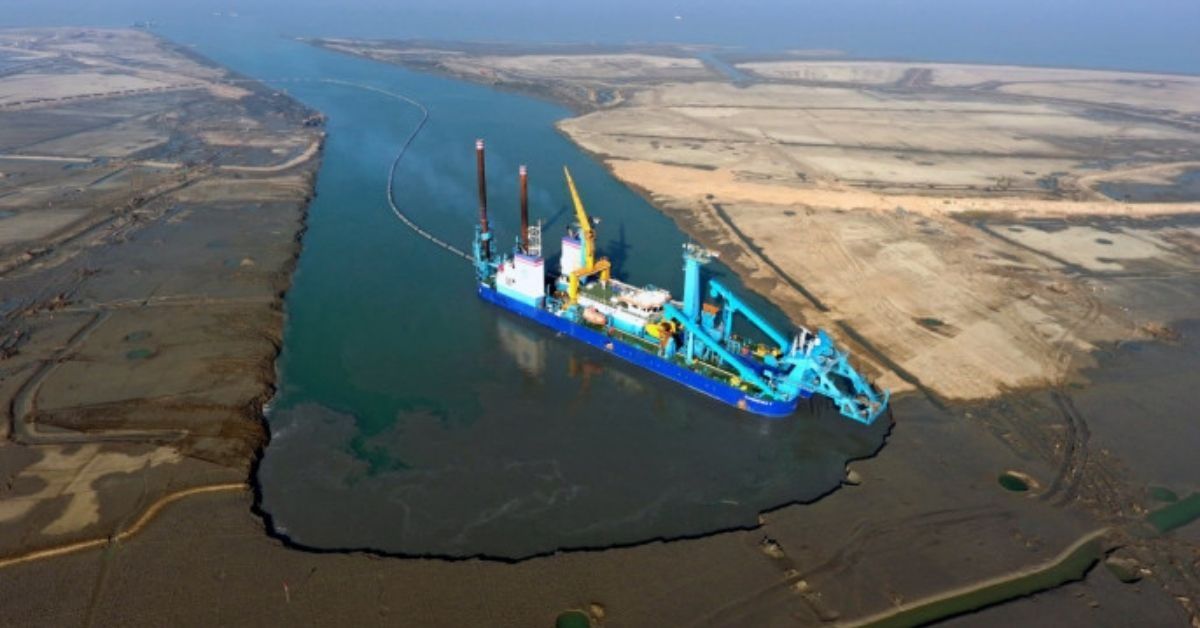The US, Japan and Australia are keen on engaging more with Bangladesh and the other Indian Ocean countries for investment and diplomatic purposes as the region holds huge economic potential but also faces the challenges of climate change and security.
Japan has rolled out a plan to support an industrial value chain centring Bangladesh’s Matarbari deep sea port, said Takagi Kei, Japan’s parliamentary vice-minister for foreign affairs, on the last day of the two-day Indian Ocean Conference in Dhaka yesterday.
Matarbari will be connected with the Southern Chattogram region and India’s Northeast through roads, bridges and water lanes.
Japan is also working with Bangladesh to improve the investment climate and draw foreign investors to the country, which is at the epicentre of the Bay of Bengal.
Under its Free and Open Indo-Pacific (FOIP), Japan also plans on providing official security assistance to Bangladesh and the other Indian Ocean countries to strengthen security in the region.
“The region must be secure and stable as we boost our economic activities,” Kei added.
The future of the world will be determined in large part by what happens in the Indian Ocean region, which is home to 2.7 billion people, said Wendy Sherman, US deputy secretary.
Its vast coastline includes some of the world’s most important shipping lanes — from the Strait of Hormuz to the Malacca Strait.
As much as 80 percent of the world’s maritime oil shipments traverse Indian Ocean waters that also have the planet’s most vital fisheries, she said.
At the same time, the region faces serious challenges including climate crisis and some of those face existential threats.
Also, piracy, armed robbery, trafficking, and illegal and unregulated fishing threaten blue economies, Sherman said.
“That’s why we have announced plans to provide $165 million for programmes across the Indian Ocean region that address climate change adaptation and mitigation, including the transition to a clean energy future.”
The US is also seeking to provide $6 million for regional maritime security initiatives, partnering with Bangladesh, India, Maldives and Sri Lanka.
The funding will bolster interdiction and law enforcement capacity in the Indian Ocean’s South Asian sub-region, Sherman added.
The US invests more than $33 million in 15 countries each year to promote sustainable fisheries and conserve marine biodiversity, according to Afreen Akter, the US deputy assistant secretary.
It is also working to identify development assistance, including to Bangladesh, focused on growing sustainable blue economies, Sherman said.
“We are already working across the Indian Ocean region to support transitions to clean energy. For instance, our US Development Finance Corporation invested $500 million in First Solar to boost solar power production in India.”
The US is also providing a $500 million grant to build hydropower lines and roads in Nepal, while it is implementing a $17 million programme over five years to expand Bangladesh’s access to affordable clean energy.
The US is working with the Maldives, Sri Lanka and partners across the Indian Ocean to make long-term investments, she said, while calling for effective regional collaboration for reducing the cost of trade and improving energy efficiency.
Australia is bolstering diplomatic engagement with the Indian Ocean countries as it seeks to establish a rules-based, free and open Indo-Pacific, which is extremely important for geostrategic and economic factors, said Tim Watts, Australia’s Assistant Minister for Foreign Affairs.
He advocated for wider and more effective regional architecture for a peaceful and predictable region.
Australia will be supporting through the Indian Ocean Rim Association for achieving the shared goals of peace and prosperity, he added.
Shahriar Alam, the state minister for foreign affairs; Masud Bin Momen, foreign secretary; Charles E Fonseka, the interior minister of Seychelles; Tandi Dorji, foreign minister of Bhutan; Narayan Prakash Saud, foreign minister of Nepal; Sayyid Badr bin Hamad bin Hamoo Albusaidi, foreign minister of Oman; Do Hung Viet, the deputy foreign minister of Vietnam; Saeed Mubarak Al Hajeri, the assistant minister for Economic and Trade Affairs of the UAE; Seyed Rasoul Mousavi, Iran’s advisor for minister of foreign affairs; and MJ Akbar, governing council member of India Foundation also spoke, among others.
India Foundation and the foreign ministries of Bangladesh and India organised the event that was attended by more than 150 representatives, including the Mauritian president, ministers, academics and officials from 25 countries.







